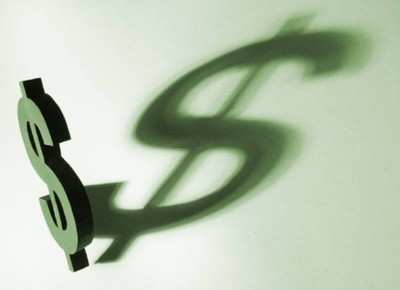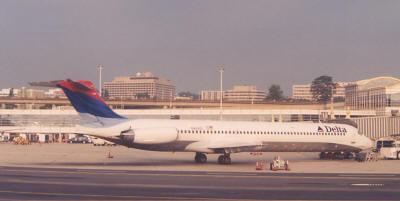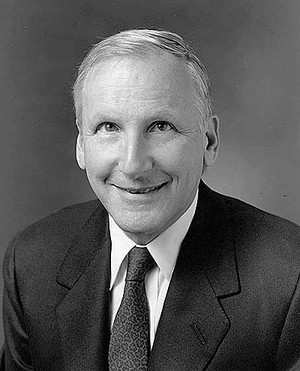Grinstein Likely To Depart After Bankruptcy Exit
 After Delta CFO Ed
Bastian dropped the first shoe on the employees at
midweek, CEO Gerald Grinstein dropped the second one
on Friday.
After Delta CFO Ed
Bastian dropped the first shoe on the employees at
midweek, CEO Gerald Grinstein dropped the second one
on Friday.
Speaking to the Associated Press in Paris, Grinstein said that
Delta was in discussions with the Pension Benefit Guaranty
Corporation about terminating the pilots' pension plan. "It'll be
probably fairly soon," he said. "We've got a judicial schedule to
conform to, but it'll be fairly soon."
He did say that the company was keeping the Air Line Pilots
Association informed of its ongoing negotiations with PBGC. As we reported last
week, the loan guaranty company argued before US
Bankruptcy Court judge Adlai Hardin that it (PBGC) should get
a $650 million note and $2.1 billion unsecured claim should the
pilots' pension be terminated -- funds Delta promised to the
pilots. Hardin rejected the PBGC claim and let the Delta deal with
the pilots' union stand.

One reason that the parties are negotiating, rather than going
to war, is that Delta is so far in debt that the unsecured claim
would be nearly worthless if the line went into Chapter 7
liquidation at this time. The pilots would just be some of many
unsecured creditors waiting in line behind secured creditors, and
might get a few pennies on the claim dollar.
Grinstein has to steer a treacherous course between killing the
company outright, and killing a Chapter 11 process which is the
sole chance to save the business. The desperate straits the company
finds itself in have helped bring unhappy pilots and other workers
to the negotiating table; a small percentage of something is better
than 100% of nothing, and liquidation leaves everybody
unemployed.

In United Airlines' bankruptcy case, the company placated the
PBGC with a substantial payout in notes and stock in the new,
post-bankruptcy UAL. The same approach is very likely in the Delta
case; there is little to negotiate with except hope for a better
future.
Grinstein's Friday comments were the first time anyone at Delta
confirmed the widely-expected pension termination. In previous
interviews, Delta officers have been unwilling to say more than
that Delta might seek termination.
Grinstein (below, right) did say that he was done wringing
concessions out of the pilots or other workers, at least for now.
"I don't expect to go back to the pilots. We have all our people at
the market rate." He offered some hope that the company could be
more efficient "in the way we operate the airline, but also in ...
revenue management, handling the network and utilization of our
equipment."
 In 2004 Delta pilots
gave the company $1 billion in annual concessions through 2009.
This week's deal was another $280 billion hit, which amounts to a
14% immediate pay cut. The pilots also promised not to fight
Delta's termination of the pension plan. A rearguard action on the
pensions would not succeed, judging by the United precedent, but
would drag out reorganization and cost Delta money and time, both
of which it needs to survive.
In 2004 Delta pilots
gave the company $1 billion in annual concessions through 2009.
This week's deal was another $280 billion hit, which amounts to a
14% immediate pay cut. The pilots also promised not to fight
Delta's termination of the pension plan. A rearguard action on the
pensions would not succeed, judging by the United precedent, but
would drag out reorganization and cost Delta money and time, both
of which it needs to survive.
The airline is in a painful place: it can't make it without
stiff concessions from employees, but it's a customer-service
business where grumpy employees drive customers away.
Grinstein also gave a hint at his own future: He'll stick with
the line "until at least we know we're coming out" of Chapter 11.
And while he spoke of the difficulty of Chapter 11 and his
unsuccessful 2005 fight to keep the company clear, he also had some
good news: "In the light of fuel at the levels that it's at, the
company was still profitable in April."
"I think that we've made remarkable progress," he said.
Grinstein's tenure as CEO has been a toboggan-ride through
Niffelheim, at an age when most men are enjoying retirement (he's
73; Yale '54 Harvard Law '57). He joined a company that was already
in desperate straits, and steered it into Chapter 11 as
three-quarters of its stock value evaporated and employees faced
layoffs and swinging pay cuts. The company suffered from fuel
costs, a crushing debt load (Delta owed more money than some entire
nations), and poor lease terms on aircraft (some of which may have
benefited previous managers at the expense of stockholders).
Grinstein's compensation is less than a half-million dollars, less than many airline CEOs' and a quarter
of the transportation industry's median, and he owns
no large blocks of Delta stock. He, Bastian, and some other
executives are believed to have special "bankruptcy-proof"
pensions.
If the company does turn around, it will be Grinstein who is
remembered as its savior, although it's not clear yet how he'll
profit from it. If it does not turn around, Grinstein will get the
blame, like an emergency room physician sued for not saving the
patient who was dragged in after being shot, stabbed, and run over
by the subway train.
 Aero-News: Quote of the Day (05.25.25)
Aero-News: Quote of the Day (05.25.25) Classic Aero-TV: Efficient Versatility -- NASA GL-10 Greased Lightning
Classic Aero-TV: Efficient Versatility -- NASA GL-10 Greased Lightning NTSB Prelim: Cessna 525
NTSB Prelim: Cessna 525 Klyde Morris (05.23.25)
Klyde Morris (05.23.25) Airborne-NextGen 05.20.25: Drone Regs, Zero-Emission Cargo, Door-Dash Drone
Airborne-NextGen 05.20.25: Drone Regs, Zero-Emission Cargo, Door-Dash Drone






